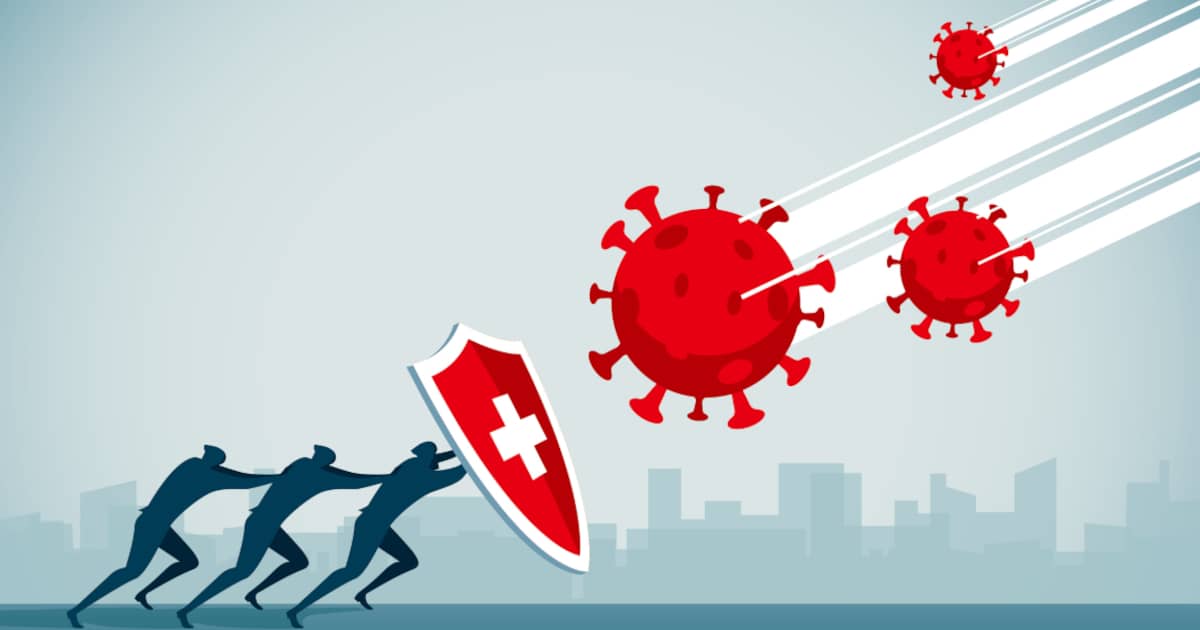The coronavirus caught the world by surprise. As Europe is bracing for the second wave of the Covid-19 pandemic, many questions remain unanswered. One of the most important pertains to the most effective manner in which the infection can be tackled. Needless to say, this is vital at a time when vaccines aren’t readily available yet and treatment protocols are in the process of being perfected.
If you go through resources on the topic, you’ll come across numerous studies and theories being conceptualised and tested right now.
Some researchers believe that the experience we have with addressing certain existing medical conditions could help in the fight against Covid-19. Is this really so and which cases can be examined to extract useful information?
Recently, the medical world turned towards sexually transmitted infections (STIs), how they spread and the approaches to their prevention. Is this knowledge, however, applicable to the fight against the novel coronavirus?
Can STDs Teach Us to Fight the Coronavirus?
A recent Politico analysis discusses the information we’ve gathered from the treatment of STIs and the manner this information could be applied to eradicating Covid-19.
The cycle of infection with the new coronavirus is very similar to the manner in which some sexually transmitted viruses like HIV spread. In addition, the early efforts for curbing the spread of HIV are scarily reminiscent of what the world is going through right now.
Initial HIV measures achieved pretty good results at first. Unfortunately, funding cuts and neglecting the most vulnerable communities, however, contributed to heightened infection rates. Fear, shame and a failure to follow key preventative measures (like using condoms) let to the complication of the situation even further.
It may seem odd to compare a virus that causes a respiratory disease to a sexually transmitted infection but there have been some stark similarities.
One of the biggest parallels is the importance of testing.
Widespread testing is one of the keys to identifying virus carriers and preventing them from contacting and potentially infecting others. So far, countries across the world have introduced Covid-19 testing with a varying degree of success. Unless tests are free and universally available, however, the pandemic will be prolonged.
There’s one more very important lesson that stems from STI programs and their application to Covid-19. Worldwide, we have been notoriously bad at funding prevention and diagnostic programs at times of relative calm.
This happened in the US in the 1960s and 1970s when tuberculosis (TB) clinics were dismantled due to the fact that the condition was considered under control. As a result, TB levels quickly went up, which caught health officials unprepared to handle the situation.
Similar examples can be discovered in other parts of the world, pertaining to the monitoring of the HIV pandemic.
Something similar has already occurred with Covid-19. As the first wave ended, many countries discontinued testing programs over the summer of 2020. As a result, numerous places in Europe are now finding themselves forced to reintroduce harsh lockdowns in an attempt to curb the rapidly growing infection rates.
The lesson to learn here is that a focus on accessible diagnostics and prevention (in combination with awareness campaigns) are essential for eradicating the virus as soon as possible. It’s not too late to turn the tide of the pandemic if health officials and societies take a step back to re-evaluate what has been considered the prevention norm till now.
Further Lessons to Learn
Apart from the large lessons, there are a few additional conclusions that can be drawn in connection to the way the world has handled the most prominent STIs out there.
For a start, assessing personal risk can be very difficult and this statement is 100 per cent true when it comes to Covid-19. Just like in the case of HIV, Covid-19 brings on a very specific mentality of “it cannot happen to me.” The reality is very different and most people can be readily exposed and even infected.
Asymptomatic carriers are also a big part of aggravating the issue.
According to some statistics, up to 80 per cent of the people who carry the coronavirus aren’t aware they have it. This sneaky presence of the virus allows it to spread much more easily and affect large groups of the population before an actual carrier gets identified.
All of these similarities lead us to the conclusion that just like in the case of STI prevention, responsibility for addressing the Covid-19 pandemic is concentrated in the hands of every single individual. Neglecting the rules, defunding clinics, ignoring the importance of protection and making testing difficult can all have a detrimental impact.
Be in Charge of Your Health!
Whether it comes to STIs or Covid-19, you have all the power to keep yourself and the people you love safe.
All the important tools are at your disposal in Singapore.
Healthcare service providers like Shim Clinic enable effortless and confidential consultations, as well as STI testing for an array of conditions. Even if you’ve never gotten tested before, come to STD clinic during our work hours every day of the week. We’ll be happy to answer your questions, appease your worries and offer the services that are most in line with your lifestyle and your health history.
References:
- Ollstein, A. M. (2020, September 23). What STDs Can Tell Us About How To Fight Covid. Retrieved November 6, 2020, from https://www.politico.com/news/agenda/2020/09/23/what-stds-can-tell-us-about-how-to-fight-covid-420720

